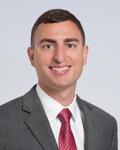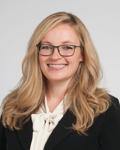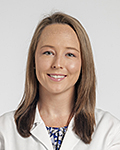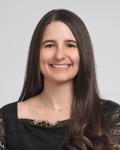Welcome
The Cleveland Clinic Neurology Residency Program is a premier resident-centric training program that provides learners with unparalleled opportunities to develop the skills necessary to excel as clinical neurologists, educators, and researchers. The program provides a supportive and innovative learning environment. The curriculum includes broad exposure to key areas of inpatient and outpatient neurology while maintaining flexibility to individualize clinical and research experiences based on each resident’s goals.
A patient population from all backgrounds offers challenging clinical experiences spanning the spectrum of neurological diseases. Our multidisciplinary model of care provides collaborative, patient-centered care emphasizing teamwork, communication, and safety. Residents are highly engaged in efforts to improve quality of patient care through assessment of patient outcomes.
Our categorical training program includes early exposure to neurology with three months of neurology and one month of psychiatry during the first year of internal medicine training. Our inpatient services focus on increasing autonomy and responsibility throughout residency to promote the development of confidence, independence, and leadership skills. In addition to the required mentored continuity clinic where residents longitudinally manage their own patients, we have built-in outpatient subspecialty experiences that provide immersive exposure to key subspecialities starting in PGY-2 year. In addition to early subspecialty exposure, residents have ample elective time to explore other areas of potential interests throughout training years.
Faculty members from every subspecialty of neurology are committed to providing exceptional clinical education and research mentorship. All faculty and residents have opportunities within the Cleveland Clinic to further develop teaching skills through formal curriculum that includes experiential learning. A research support structure ensures that every resident can contribute to advancing knowledge in the field of neurology. Additionally, our program offers both a resident educator and resident research track.
Outside of clinical training, we also strive to promote a culture of wellness for our residents. We know personal and professional development are imperative for growth during and even long after residency. We have several resources available to promote well-being for our residents through our dedicated wellness curriculum. Though we are a large training program, we aim to cultivate a strong culture of camaraderie and support. Our program takes pride in being responsive and understanding of the need for flexibility for life events.
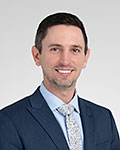
A. Blake Buletko, MD
Program Director
Program Leadership
A. Blake Buletko, MD |
|
MaryAnn Mays, MD |
|
Robert Marquardt, DO |
|
| Payal Soni, MD |
|
| Lindsay Ross, MD |
|
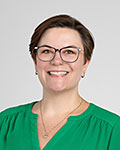
Lori Cesa, MPH |
|
Additional Program Leaders
Justin Abbatemarco, MD
Residency Director for Inpatient General Neurology
Benjamin Claytor, MD
Residency Director for Consultation Neurology
Dhimant Dani, MD
Residency Co-Director for Advanced Skills Training
Jessica Fesler, MD
Residency Ombudsman
Catherine Hassett, DO
Residency Co-Director for Advanced Skills Training
Marisa McGinley, DO
Residency Director for Research Track
Dolora Wisco, MD
Residency Director for Quality and Patient Safety
Research
Our residents have numerous research opportunities across subspecialities. We support residents in their personal interest in research, including quality clinical, translational, and basic science research, as well as quality improvement and medical education research, and we encourage each resident to become involved to the degree they choose. Our resident-staff mentorship program and bi-annual meetings with program leadership ensure each resident has support in selecting enriching research opportunities while balancing clinical growth. To facilitate early exposure, research electives may begin in PGY2 year and continue throughout residency. Each resident completes a PGY3 project in close collaboration with a chosen mentor, with funded statistical support. Several noon seminars are dedicated to fundamentals of research, with structured support and project review given to each trainee. Residents of any year are able to present their work at the Neurologic Institute Fellows & Trainee Research Day, a celebration of work across departments within the institute. Residents have access to travel funds, often used for the annual AAN meeting, as well as a variety of subspecialty conferences. Statistical courses geared toward resident needs and schedules are offered by Cleveland Clinic Quantitative Health Services. Cleveland Clinic Adult Neurology Residency Program also offers a research track for interested residents to develop skills as future clinician scientists. Please see the curriculum tab for more information.
Curriculum
Program Description
The Neurology Residency Program, which is ACGME-accredited, accepts candidates through the Electronic Residency Application Service (ERAS). There are twelve categorical positions offered per year in our four-year program, including an integrated prelim internal medicine year at Cleveland Clinic.
Outpatient Clinics
Cleveland Clinic has a weekly continuity clinic program to enhance longitudinal care in our curriculum. Starting in their PGY-2 year, each resident will see patients for a full day in resident continuity clinic, which occurs weekly except for when residents are working on a primary inpatient service. In addition to continuity clinic, residents will have 8 weeks of subspecialty clinic interspersed throughout the year. During these clinic weeks, residents rotate for one week in one of eight core subspecialty centers. The eight clinic weeks are repeated each year providing graduated exposure to subspecialties throughout the entirety of the training program. In addition to continuity clinic, residents will have 8 weeks of subspecialty clinic interspersed throughout the year”: Neuro-degenerative disorders, Neuro-oncology, Neuro-immunology, Headache and facial pain, Epilepsy, Movement disorders, Neuromuscular disorders, Vascular neurology.
Inpatient Experiences
First Year of Residency (PGY-1)
The American Board of Psychiatry and Neurology (ABPN) requires that the PGY-1 year be spent in an accredited medical training program. Our categorical program seamlessly integrates this introduction to medicine during the PGY-1 year while also fulfilling other ABPN requirements such as the psychiatry rotation. This year also includes three months on stroke, general and consult neurology services to facilitate integration into the neurology department. To learn more about the Internal Medicine Residency program.
First Year of Neurology Residency (PGY-2)
During PGY-2 year, the focus is on direct patient care in the inpatient and outpatient settings. The inpatient general neurology team includes a senior neurology resident (PGY3 or PGY4), junior neurology residents, and medical students. The inpatient stroke team consists of a senior neurology resident (PGY3 or PGY4), junior neurology residents (PGY2 or PGY1), a medicine resident, three advanced practice providers, and medical students. Starting in the second half of PGY-2, residents gain additional experience as an inpatient neurohospitalist and consultant while rotating at one of the Cleveland Clinic’s regional community hospital locations. This rotation provides valuable insight and exposure to different cases and inpatient workflow compared to what residents see at CCF Main campus.
Second Year of Neurology Residency (PGY-3)
During PGY-3 year, 9 weeks are dedicated to managing the three inpatient services, which include general neurology, stroke, and adult neurology consults. Senior residents also spend time as our neurohospitalist, which includes triaging the neurology consult pager. Seniors will also spend a few weeks as the first responder to in-house and ED acute stroke (ASERT rotation). Other rotations include night float, neuro ICU (NICU), epilepsy, and pediatric neurology. The remaining time is split between electives and ambulatory clinics. During PGY-3 year, residents will spend ten weeks in a clinical neurophysiology rotation. A two-month EEG/epilepsy rotation features an in-depth course covering EEG, evoked potentials, and surgical treatment of epilepsy. Residents read EEG records, attend staff reading sessions, and attend epilepsy outpatient clinics. A two-week rotation in the EMG laboratory includes didactic sessions, as well as hands-on experience in the techniques of nerve conduction studies and needle electrode examinations.
Third Year of Neurology Residency (PGY-4)
During PGY-4 year, about 4 weeks are dedicated to managing the general neurology and adult neurology consult services. Interested PGY-4 residents spend additional time rotating on the inpatient stroke service. There is a neuropathology course (4 weeks) where residents work directly with our neuropathologists reviewing pathological specimens. Residents also spend 4 weeks doing regional neurology as a consultant in a community hospital. Similar to PGY-3 year, other rotations include time as the neurohospitalist, ASERT rotation, night float, epilepsy, and pediatric neurology. PGY-4 residents also have 4 weeks of dedicated self-study time for boards interspersed throughout the year. An optional, more intensive 8-week EMG/neuromuscular course provides further hands-on experience with electrodiagnostics. The remaining time is split between electives and ambulatory clinics.
Elective Rotations
Trainees in Neurology can choose from a vast array of elective rotations. Residents with particular research interests may use multiple blocks of elective time to devote to specific projects. For special academic pursuits, residents may spend elective time away from Cleveland Clinic, upon approval from the Program Director. The below electives are the most commonly selected, but other electives, including those outside of CCF, are available. Alternative rotations can be completed with support from the Program Director, the Chief Residents, and the staff supervising the elective.
|
|
Fellowship Programs
- Behavioral Neurology & Neuropsychiatry (Las Vegas and Cleveland).
- Clinical Neurophysiology.
- Endovascular Surgical Neuroradiology.
- Epilepsy.
- Headache Medicine.
- Intracranial Neurophysiology.
- Movement Disorders.
- Neurocritical Care.
- Neurohospitalist.
- Neuroimmunology.
- Neuromuscular Medicine.
- Neuro-Oncology.
- Sleep Medicine.
- Vascular Neurology.
Conferences/Didactics
The Cleveland Clinic Neurology Residency Program offers an extensive schedule of didactic and continuing medical education lecture series and conferences for trainees and staff.
Neurology Noon Conference
The noon hour is protected time for resident education. These hour-long sessions occur in a variety of formats, as described below. Suggested reading, seminar slides and video recordings from each session are made available to residents to guide self-study and board preparedness.
Staff Lectures
Staff provide interactive seminars based on their area of expertise and cover diagnostics, management, factors that influence health outcomes and case-based approaches of a particular disease state. These seminars are grouped by neurology subspecialty, covering all disciplines of neurology in detail over the course of each academic year. Residents are also provided with recommended literature (topic reviews, landmark papers, textbook selections) to guide their reading and consolidate knowledge.
Evidence Based Medicine (EBM)
EBM sessions are led by junior residents, guided by the expertise of a staff liaison chosen for each discussion. These sessions are a deep dive into the body of scientific literature behind the clinical questions that are commonly encountered in neurology practice. The focus is finding evidence-based answers for these questions.
Localization Rounds
Residents discuss a challenging or informative case in detail, focusing on clinical aspects that help localize the problem within the nervous system. During these sessions we cover clinically relevant anatomy and its relationship to the neurological exam. PGY2 residents are the main participants in the case discussions, as localization skills are essential to a foundation in clinical neurology.
Senior Case Conference
PGY3 senior resident presents a particularly challenging and educational case that was encountered on hospital service or in clinic. These are often cases that were seen at multiple institutions before a diagnosis was achieved. The case is followed by an in-depth review of the disease entity which was ultimately uncovered.
PGY-1 Foundations of Neurology
Six protected half day sessions which occur in the second half of the intern year reviewing foundational neurology topics including neurology exam and central and peripheral neuroanatomy as well as initial evaluation for bread and butter neurology complaints like seizures and dizziness
Bootcamp Week
Dedicated week at end of PGY1 year where rising PGY2 attend seminars, practice procedural skills, and complete simulations to learn management of neuro-emergencies.
Subspecialty Conferences
Weekly discussions are held among various disciplines in Neurology. These occur in a highly collaborative environment where clinical topics and real-life cases are highlighted. These include the following:
- Cerebrovascular Center Patient Management Conference.
- Autoimmune Neurology Conference.
- Epilepsy Patient Management Conference.
- Pediatric Neurology Neuroimaging Conference.
Other Weekly Conferences
- Neurology Grand Rounds.
- Epilepsy Grand Rounds.
- Pediatric Neurology Grand Rounds.
- Tumor Board.
Other Monthly Conferences
- Neurology Journal Club.
- CNS Vasculitis / Vasculopathy Conference.
- Neurology Quality / Patient Safety Conference.
- Monthly Meeting with Program Director, Department Chairman and Residents.
- Resident Wellness Series.
Residency Tracks
Resident Research Track
This track provides the opportunity for interested residents to develop skills as future clinician scientists and prepare them for an academic career as a clinician-investigator either in clinical neuroscience research or translational neuroscience through completion of a research curriculum, direct investigative study, oral and written scientific presentation facilitated by structured faculty mentorship throughout their training. There is one trainee selected per class.
Objectives:
- The research track schedule includes six months of dedicated research time during the residency.
- The program provides a dedicated mentored research experience for neurology residents.
- Research projects may be undertaken in any suitable area of clinical or translational neuroscience at Cleveland Clinic.
- Residents will participate in a curriculum that focuses on manuscript and grant writing with training in research methodology.
- It is expected that the successful candidate will finish with demonstrable output such as peer-reviewed articles, presentations at a national meeting, and/or a draft of a grant application.
- Residents will be expected to present their work at Cleveland Clinic's annual Neurological Institute Forum for Trainee Research Day (NIFT Research Day)
Resident Educator Track
This track provides interested residents (two per class) the opportunity to develop skills as future clinician scientists and prepare them for an academic career as a clinician-investigator either in clinical neuroscience research or translational neuroscience through completion of a research curriculum, direct investigative study, oral and written scientific presentation facilitated by structured faculty mentorship throughout their training.
Objectives:
- By the end of the PGY-3 year, the resident will complete the Cleveland Clinic Essentials Program for Health Professions Educators & Essentials on Demand: Distinguished Educator Program.
- By the end of the PGY-4 year, the resident will complete and disseminate one education-related project and submit it for publication, if appropriate.
- During PGY-4 year, the resident will serve in one or more of the following education-related roles:
- Education Chief Resident, if elected
- Curriculum design for the neurology residency noon conference schedule
- Chair one or more resident education committees
- Medical student liaison
- By the end of PGY-4 year, the resident will have given up to 2 lectures (time permitting) during regularly scheduled noon-conference using the skills obtained through the Essentials Program. One of these must be on the topic of education with the goal of teaching fellow trainees/learners how to be effective teachers.
Schedules
PGY-2 Schedule Overview
Inpatient Rotations
- Inpatient Stroke Neurology: 5-6 weeks
- Acute Stroke Neurology: 3 weeks
- General Neurology: 7-8 weeks.
- Night Float: 4 weeks.
- Adult Neurology Consults: 3-4 weeks.
- Neuro ICU: 2 weeks.
- Epilepsy: 4 weeks (2 adult consults, 2 pediatric epilepsy monitoring unit).
- Pediatric Consults or Outpatient Clinic: 2 weeks.
- Regional Neurology Consults: 2 weeks
Outpatient Rotations
- Subspecialty Clinics: 8 weeks.
- Elective: 6 weeks.
- Vacation: 4 weeks.
PGY-3 Schedule Overview
Inpatient Rotations
- Inpatient Stroke Neurology: 4 weeks.
- Acute Stroke Neurology: 2 weeks.
- General Neurology: 2-3 weeks.
- Q2 Night Float (every other night): 4-5 weeks.
- Neuro ICU: 3 weeks.
- Adult Neurology Consults: 2-3 weeks.
- Epilepsy (Adult Epilepsy Monitoring Unit): 2 weeks.
- Pediatric Consults or Outpatient Clinic: 2 weeks.
- Neurohospitalist: 2 weeks.
Outpatient Rotations
- EMG Course: 2 weeks.
- EEG Course: 8 weeks.
- Subspecialty Clinics: 8 weeks.
- Elective: 5-6 weeks.
- Vacation: 4 weeks.
PGY-4 Schedule Overview
Inpatient Rotations
- Inpatient Stroke Neurology: 0-2 weeks (depending on Stroke interest)
- Acute Stroke Neurology: 2-3 weeks.
- General Neurology: 2 weeks.
- Q2 Night Float (every other night): 3-4 weeks.
- Adult Neurology Consults: 2 weeks.
- Epilepsy (Pediatric Epilepsy Monitoring Unit): 2 weeks.
- Pediatric Consults: 4 weeks.
- Regional Neurology Consults: 4 weeks.
- Neurohospitalist: 2-3 weeks.
Outpatient Rotations
- Neuropathology: 4 weeks.
- Subspecialty Clinics: 8 weeks.
- Elective: 9-10 weeks.
- Optional EMG/Neuromuscular Course: 4-8 weeks (of elective time).
- Vacation: 4 weeks.
Application Process
Our ACGME-accredited Neurology Program accepts candidates through the Electronic Residency Application Service (ERAS) and Supplemental ERAS. There are twelve positions offered per year in our four-year categorical program (PGY-1 to PGY-4) which includes a required first year in Internal Medicine at Cleveland Clinic. There is no need to apply separately to Internal Medicine. We welcome applicants from allopathic, osteopathic, and international medical schools. Cleveland Clinic sponsors both J-1 and H-1B visas.
While we review each application holistically, some of the following preferences are desirable:
- PASSING score on USMLE I and USMLE Step II >225.
- COMLEX scores Steps I and II >500.
- Applicants may submit either USMLE or COMLEX results; taking both tests is not required.
- We prefer that applicants have graduated from medical school within the past 5 years.
Minimum Requirements
- International Medical Graduates must possess a valid ECFMG certificate by rank list submission.
- International Medical Graduates must have at least one month of U.S. clinical experience (includes acting internship or observership).
- U.S. Medical Students must have passed USMLE I and sat for the USMLE II by November of the year applying through ERAS.
We begin accepting applications per the ERAS timelines. Early application is encouraged. Interviews are offered after a holistic, in-depth review of the application, which can sometimes take a couple of weeks. Prospective candidates are contacted via Thalamus to schedule a virtual interview. Our interviews typically occur in October through January.
Program Contacts
A. Blake Buletko, MD
Program Director
Cleveland Clinic
9500 Euclid Ave / S80
Cleveland, OH 44195
Lori Cesa, MPH
Residency Program Manager
Cleveland Clinic
9500 Euclid Ave/S100A
Cleveland, OH 44195
Phone: 216.218.5209
Email: cesal@ccf.org
Current Residents
Education has been an integral component of Cleveland Clinic's mission since its inception in 1921. As a part of that overall commitment to education, below are the recognized current neurology residents who value the importance of providing the highest quality of medical care.
Adult Neurology Residents
Chief Residents
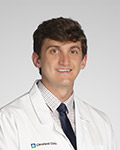
Eric Aube, MD |
|
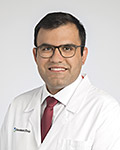
Shervin Badihian, MD |
|
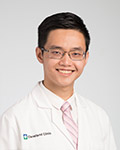
Johnny Dang, MD |
|
PGY-4
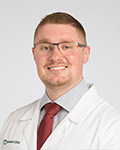
Tyler Bare, MD |
|
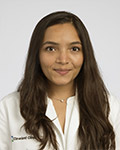
Sakhi Bhansali, MBBS |
|
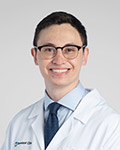
Jonathan Doan, MD |
|
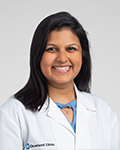
Sanuri Gunawardena, MD |
|
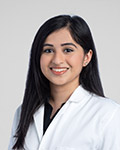
Farah Khan, DO |
|
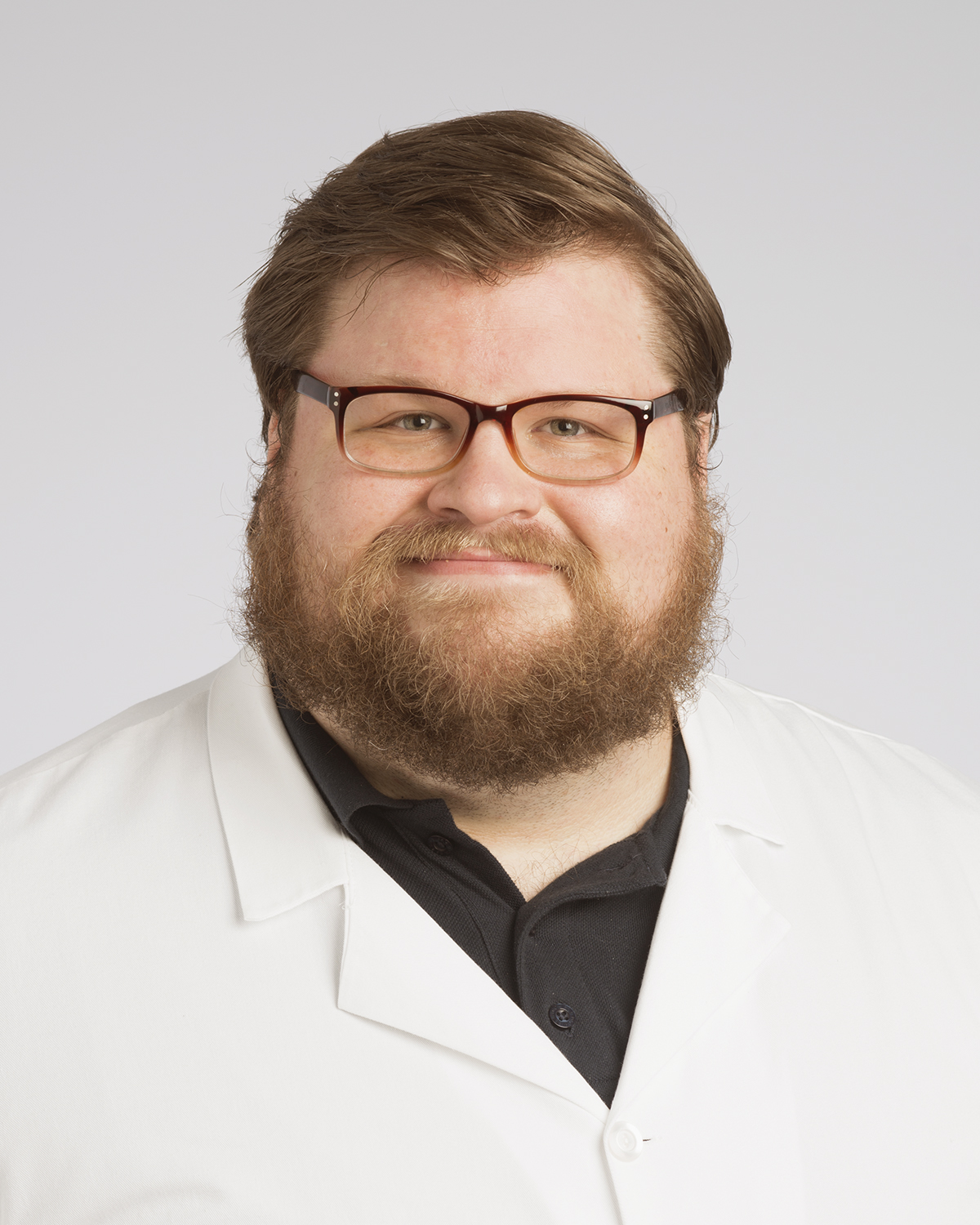
Andrew (Andy) Lamade, MD, PhD |
|
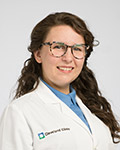
Elizabeth Page, MD |
|
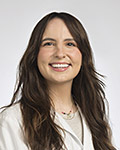
Damla Sarisaltik, DO |
|
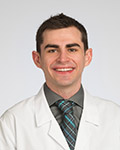
Emery Weiss, DO |
|
PGY-3
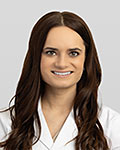
Ashley Audi, M.D. |
|
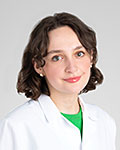
Margarita Fedorova, MD |
|
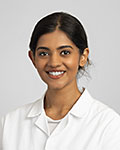
Nishtha Gupta, MD |
|
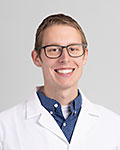
Matthew Howard, MD |
|
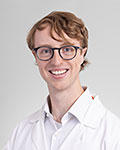
Adam Lonnberg, MD |
|
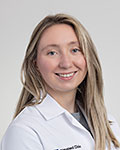
Casandra MacLeod, DO |
|
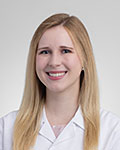
Heidi Mueller, MD |
|
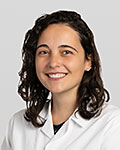
Leah Musser, MD |
|
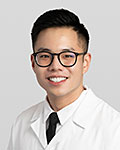
Bradley Ashley Ong, MD |
|
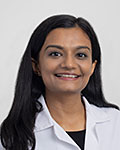
Kajal Patel, MBCHB |
|
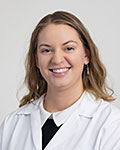
Alyson Rich, MD |
|
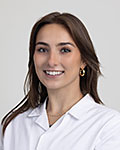
Elizabeth Zollos, DO |
|
PGY-2
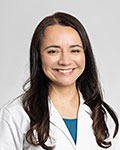
Diana Arias, DO |
|
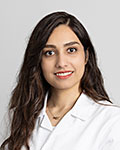
Negin Badihian, MD |
|
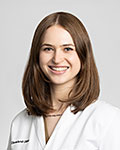
Brittany Calkins, MD |
|
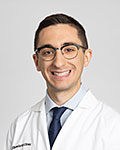
Christopher Economus, MD |
|
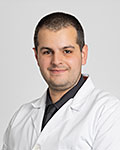
Omar Ezzedin, MD |
|
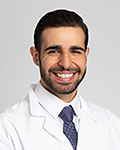
Christopher Jamhour, MD |
|
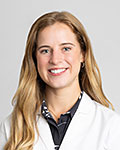
Hailey Katulski, DO |
|
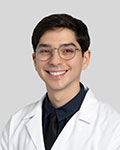
Victor Lomachinsky Torres, MD |
|
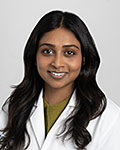
Nivethitha Manohar, MD |
|
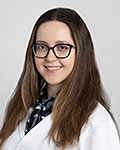
Ivana Massabki, MD |
|
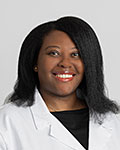
Amanda Okonmah, MD |
|
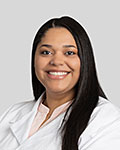
Serena Simpson, MD |
|
PGY-1
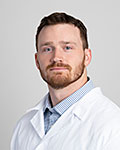
Brendan Baugher, DO |
|

Emily Bossie, DO |
|
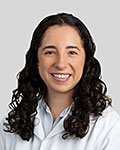
Bella Buccieri, MD |
|
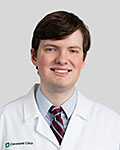
Chris Cantrell, MD |
|
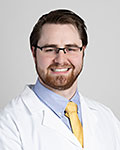
Patrick Forrestel, MD |
|
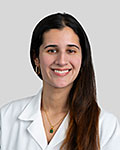
Mehak Khan, MD, PhD |
|
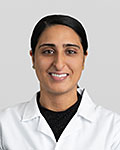
Avina Mahroke, DO |
|
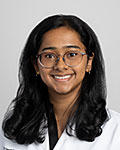
Miriam Matthews, MBBCh, BAO |
|
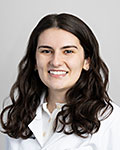
Anna McDowell, MD |
|
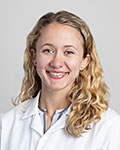
Claire Popovich, MD |
|

Luis Guilherme Ramanzini, MD |
|
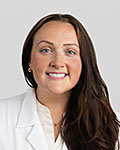
Michaela Stamper, MD |
|
Benefits
Competitive health, dental and vision insurance are provided. Disability insurance is also included. Multiple sets of scrubs and white coats are provided free of charge. Call money to be used at the cafeteria and in-house eateries is allotted to each resident according to the average number of calls per PGY year. Senior residents (PGY3 & 4) are permitted to moonlight on the Neurology, Epilepsy and NICU services. The department also sponsors junior membership in the American Academy of Neurology for all residents. Four weeks are allotted for vacation each year, which includes a one-week holiday block. Our residents are given a yearly educational fund of $1000 and support to present at national meetings in the amount of $2500/year (PGY2-4). The on-campus Library is accessible virtually. References include 8000+ clinical texts, 900+ journals. Cleveland Clinic offers a Health Fitness Center on campus as well as many resources available to you to support your health and well-being.
Additional Program Benefits
- Resident Educator and Researcher Tracks.
- Women in Neurology Trainee Council.
- Community Outreach Education.
- Career Coaching/Mentoring.
Wellness
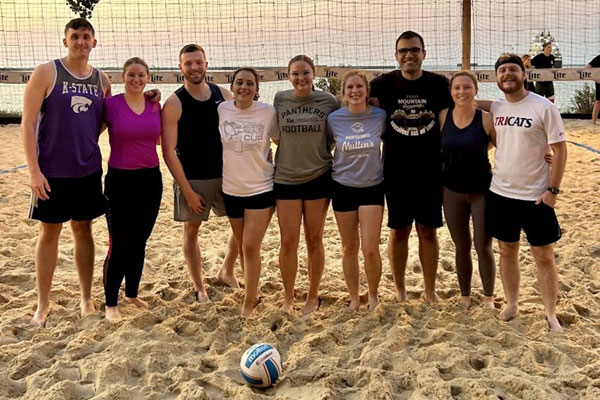
Individual well-being is a key component of physician satisfaction and success in training. Our program is committed to improving the well-being of our neurology residents and understands how personal and work stresses can impact quality of life and the ability to provide skillful and compassionate care. We aim to support and empower our residents both inside and outside of the hospital by providing resources and education targeting all aspects of life including physical, emotional, social, and professional wellbeing. Our Wellness Committee is resident-led and organizes a monthly conference that addresses resident-selected topics, hosts fun activities and games, and allows residents to enjoy a well-deserved break during the day to form stronger connections with their classmates. Our resident-led Social Committee organizes regular holiday parties, family-friendly outings, and sporting events outside of the hospital. Some of our residents’ favorite activities include participating in our summer beach volleyball team, pot-luck dinners, and the annual resident retreat. Our faculty are also committed to resident wellness and often host residents at their homes for dinners and journal clubs.
Recent Wellness Committee Activities:
- Code Lavender: caregiver wellness team provided a fun and engaging hands-on experience for residents with journaling techniques, reiki, tea, essential oils, and more!
- Board game day, pumpkin painting, holiday cookie decorating.
- Sleep Wellness: chatted with our very own sleep medicine physicians to discuss how to get better sleep, the use of sleep aids, and sleep schedules. The residents also made relaxing mocktails.
- Senior Superlatives: funny appreciation awards given to the graduating class by the juniors.
Cleveland Clinic as an institution also prioritizes resident wellness and provides additional resources such as Caring for Caregivers, which provides free compassionate and confidential support for employees, including residents.
Alumni
Our graduates pursue a wide variety of career options including but not limited to: academic sub-specialization, research, neurohospitalist roles, and private practice. Below, we have listed graduates from our last three graduating classes and their immediate post-graduation career paths. It is important to note that while many of our graduates may ultimately practice throughout the country and world, they always have a home here at the Cleveland Clinic.
2025 Graduates
Joseph P. Conway - Neuromuscular Fellowship, CCF
Jessica L. Cooperrider - Epilepsy Fellowship, CCF
Benjamin Coors - Vascular Neurology Fellowship, CCF
Vijaya Ravali Dasari - Epilepsy Fellowship, CCF
Katherine D. Havard-Coiro - MS Fellowship, CCF
Morgan E. Heber - Neuromuscular Fellowship, CCF
Kaitlyn N. Palmer - MS Fellowship, CCF
Adam Scott Brody Ross - Headache Medicine Fellowship, CCF
Daniel Graham Swearingen - Staff General Neurologist, CCF
Price Tipping - Neuroinfectious Disease Fellowship, CCF
Hayley Gibler Williams - Neurocritical Care Fellowship, CCF
Eric Zhou - Epilepsy Fellowship, CCF
2024 Graduates
John (Dan) Bireley - Neuromuscular Fellowship, Duke
Marie Elena Byrnes - Epilepsy Fellowship, CCF
Eric Dunn - Headache Fellowship, CCF
Patrick Gilson - Movement Disorders Fellowship, University of Rochester
Jonathan Handshoe - Stroke Fellowship, CCF
Jeffrey Lambe - Neuroimmunology Fellowship, CCF
Emily Maly - Fellowships in Movement Disorders, Behavioral Neurology, and Neuropsychiatry, CCF
Maria Sokola - Stroke Fellowship, CCF
Faez Syed - Epilepsy Fellowship, UT Southwestern Medical Center
Sanem Uysal - Neuromuscular Medicine Clinical Fellowship, Massachusetts General Hospital/Brigham and Women’s Hospital
2023 Graduates
Albert Aboseif - Autoimmune Neurology and Multiple Sclerosis Fellowships, Mayo Clinic
Kimberly DiMauro - Neuroimmunology Fellowship, CCF
Aron Gedansky - Vascular Neurology Fellowship, CCF
Merry Huang - Vascular Neurology .Fellowship, CCF
Avery Kundrick - Movement Disorders Fellowship, CCF
Zachary McKee - Epilepsy Fellowship, CCF
Annalisa Morgan - Neuroimmunology Fellowship, Yale
Carol Swetlik - Neuroimmunology Fellowship, CCF
Karlo Toljan - Neuroimmunology Fellowship, CCF
Andrew Zhang - Vascular Neurology Fellowship, CCF
2022 Graduates
Moein Amin - Neuroimmunology Fellowship, CCF
Nirmal Andrapalliyal - Neuromuscular Fellowship, Wake Forest
David Baker - Stroke Fellowship, CCF
Pradeep Chandan - Epilepsy Fellowship, University of California San Diego
Andrew Dhawan - Neuro oncology/genetics, CCF
Jeremy Hill - Neuromuscular Fellowship, CCF
Joshua Rim – Neuromuscular Fellowship, Mt. Sinai, NYC
Joshua Santucci - Vascular Neurology Fellowship, CCF
Aaron Shoskes - Vascular Neurology Fellowship, Univ of Miami
Kristopher Southard - Stroke Fellowship, Washington University in St. Louis
2021 Graduates
Alise Carlson- Neuroimmunology Fellowship, CCF
Jennifer Chima– Headache Medicine Fellowship, CCF
Tracey Fan– Neurocritical Care Fellowship, MGH
Eric Gruenthal– Sleep Medicine Fellowship, CCF
Ahmad Mahadeen– Neuroimmunology Fellowship, CCF
Bhagee Maulpur– Stroke Fellowship, Univ of Miami
Megha Purohit– Stroke Fellowship, Columbia
Danielle Richards- Neuromuscular Fellowship, CCF
Monica Scarsella– Stroke Fellowship, CCF
Michael Zatt- Headache Medicine Fellowship, CCF
Living in Cleveland
Cleveland, a mid-sized city located on Lake Erie, features a host of cultural attractions, recreational activities, major sporting events and an exploding culinary scene. Cleveland is home to the second largest theater district in the U.S., a park system featuring 23,700 acres in 18 reservations, and is the birthplace of rock ’n’ roll, home to the Rock ‘n’ Roll Hall of Fame and Museum. Cleveland Clinic is located near the University Circle area, which is the cultural epicenter of Cleveland. This area features Severance Hall and the world-renowned Cleveland Orchestra, the Cleveland Museum of Art, several other museums, and Case Western Reserve University. Downtown Cleveland, home to all major sports venues and an exploding culinary scene, is approximately two miles from Cleveland Clinic’s main campus.
